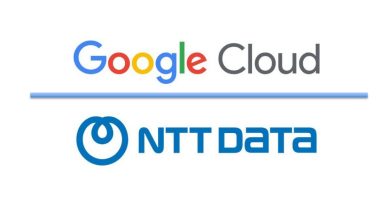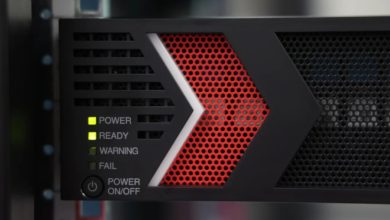Malaysia’s Manufacturing Sector Can Overcome Digitalisation Challenges with Universal Automation

By Ng Wei Jie, Business Vice President, Industrial & Process Automation, Schneider Electric Malaysia
 Since 2010, the number of Malaysian companies focusing on factory automation has doubled, with the top 10 firms now boasting a combined valuation exceeding RM25.8 billion, according to Malaysian Investment Development Authority (MIDA). Automation has proven to be a game-changer, reshaping how industries approach operation scalability, production optimisation, engineering efficiency, and sustainability. It is especially important for Malaysia’s manufacturing sector, which is projected to grow by 4.5% next year, according to the recent Economic Outlook 2025 report from the Ministry of Finance.
Since 2010, the number of Malaysian companies focusing on factory automation has doubled, with the top 10 firms now boasting a combined valuation exceeding RM25.8 billion, according to Malaysian Investment Development Authority (MIDA). Automation has proven to be a game-changer, reshaping how industries approach operation scalability, production optimisation, engineering efficiency, and sustainability. It is especially important for Malaysia’s manufacturing sector, which is projected to grow by 4.5% next year, according to the recent Economic Outlook 2025 report from the Ministry of Finance.
With the rise of Industry 4.0 or Smart Factory technologies, manufacturers around the world are also increasingly adopting Internet of Things (IoT), Artificial Intelligence (AI), and robotics to create more interconnected and intelligent systems that optimise resource management and enhance decision-making processes. To support local manufacturer’s growth, the Malaysian government has set a target to convert 3,000 factories into smart factories by 2030 under the New Industrial Master Plan (NIMP) 2030.
However, the manufacturing sector faces unique hurdles in embracing digital transformation. According to industry experts, one of the challenge lies with IT. Many legacy systems may include outdated or unnecessary software licenses that are no longer relevant in today’s digital landscape. The drive towards sustainability adds another layer of complexity. With environmental concerns at the forefront and regulations in place, manufacturers are compelled to weave sustainable practices into the very fabric of their operations. This shift is not merely about compliance; it’s about securing a competitive edge and ensuring viability in a market that increasingly values environmentally conscious practices.
Enter universal automation — a transformative approach that revolutionises the integration of digital technologies in manufacturing. This strategy employs a modular, plug-and-produce software ecosystem, reminiscent of an app store for industrial applications, which significantly simplifies the adoption of the best available solutions. This not only enhances operational flexibility but also reduces overhead costs, positioning universal automation as a key enabler in the digital transformation of manufacturing.
Overcoming Digital Transformation Challenges with Universal Automation
Universal automation simplifies the integration of new technologies into existing systems, offering a seamless approach that allows manufacturers to enhance their operational frameworks without the need for a full-scale overhaul. This streamlined integration preserves existing investments while accelerating the adoption of innovative practices.
A key component of this strategy is the decoupling of automation software from hardware, as exemplified by the adoption of the IEC 61499 standard. This standard introduces an open, event-driven architecture for distributed control systems (DCS), enabling seamless integration across diverse equipment from various vendors.
Platforms like Schneider Electric’s EcoStruxure™ Automation Expert, which are built on this standard, represent the first brand-agnostic software solutions. They facilitate digitalisation while minimising costs and operational disruptions. Developed Schneider Electric and supported by UniversalAutomation.org, an independent, non-for-profit association, the shared runtime execution engine based on the IEC 61499 standard. By embracing this software-defined approach, the industrial sector can overcome the limitations of traditional, closed automation systems. This shift fosters greater adaptability, allowing companies to innovate and evolve more rapidly in an increasingly interconnected and dynamic global environment.
The scalability and flexibility inherent in universal automation solutions are also vital for manufacturers aiming to grow and adapt over time. These solutions can be tailored to expand and evolve in tandem with a company’s changing needs, offering a durable advantage in a rapidly advancing technological environment.
Universal automation also directly addresses the prevalent skills gap in the industry. By introducing user-friendly interfaces and streamlined processes, these systems reduce the reliance on highly specialised training, allowing existing employees to upskill and adapt to new technologies more effectively.
Driving Sustainability Through Universal Automation
Driving sustainability through universal automation is one of its standout benefits, particularly its potential to significantly enhance energy efficiency. By optimising the operational dynamics of machines and systems, universal automation ensures that energy consumption is minimised, reducing the environmental footprint associated with manufacturing processes.
Beyond energy management, universal automation excels in resource management. It enables precise control and monitoring of material use, promoting the efficient utilisation of resources and minimising waste production. This precision not only helps conserve valuable materials but also leads to cost savings, creating a dual advantage for manufacturers committed to sustainable practices.
Moreover, the integration of universal automation generates a vast pool of data from daily operations. This wealth of information provides deep insights into every aspect of the manufacturing process, enabling manufacturers to make more informed decisions. By analysing this data, manufacturers can refine their energy usage, optimise material consumption, and improve waste management practices.
As Malaysia continues its digital transformation journey, the integration of universal automation into manufacturing practices is becoming increasingly crucial. This technological integration, coupled with a robust emphasis on sustainability, is setting the stage for businesses to not only meet but exceed industry standards.
Universal automation is not about replacing the human workforce but enhancing it, fostering an environment where technology and human ingenuity coexist to propel the manufacturing sector towards a more efficient, sustainable, and innovative future.
Schneider Electric champions this vision with a comprehensive suite of industrial automation solutions, including advanced Programmable Logic Controllers (PLCs), Variable Speed Drives, Signals and Relays, and cutting-edge software from AVEVA. These tools are designed to enhance operational efficiency and adaptability, empowering industries to excel in the evolving business landscape.




